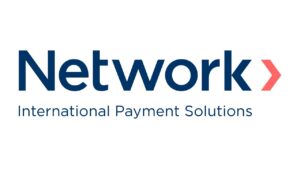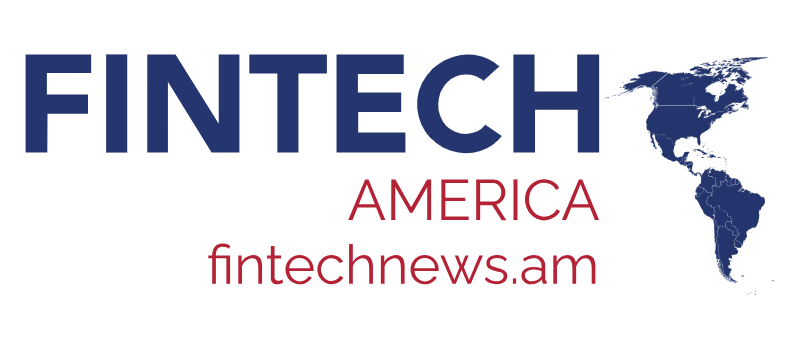The global fintech sector is witnessing a slowdown in deal activity, with companies adopting a cautious “wait-and-see” approach. In the first half of 2023, only 128 mergers and acquisitions (M&A) were recorded, compared to 248 and 188 in the first and second halves of 2022, respectively, data from S&P Global Market Intelligence, a provider of multi-asset class data, research and analytics, show.
Despite the contraction, firms remain interested in exploring options, preparing for potential deals when market conditions improve. According to the S&P Global Market Intelligence, several fintech segments are attracting merger and acquisition (M&A) interest, including payments, treasury management software and corporate carve-outs.
To get a sense of this year’s fintech M&A landscape, we compiled a list of eight of the largest merger and acquisition (M&A) deals in the sector announced in the first half of 2023. For this list, we used data from S&P Global Market Intelligence, Fintech Global and Statista.
Adenza – US$10.5 billion

Nasdaq, a technology company serving the global financial system, announced in June that it had entered into a definitive agreement to acquire Adenza from Thoma Bravo for US$10.5 billion in cash and shares of common stock.
Adenza is a rapidly expanding software firm that provides risk management and regulatory software to the financial services industry. It was born from the merger of two recognized brands, namely Calypso and AxiomSL. Calypso provides capital market participants with comprehensive treasury, risk, and collateral management workflows, while AxiomSL offers regulatory and compliance software solutions to financial institutions.
The acquisition of Adenza is set to complement the Nasdaq’s existing marketplace technology and anti-financial crime solutions, expanding the breadth of the company’s offerings in regtech, compliance, and risk management.
With the addition of Adenza, Nasdaq is poised to provide unparalleled support to financial institutions and allow the company to establish a multi-asset class, full trade lifecycle platform with unparalleled regulatory technology solutions.
SimCorp – US$4.31 billion

Stock exchange operator Deutsche Boerse announced in April a EUR 3.9 billion (US$4.31 billion) takeover offer for Danish investment management software company SimCorp as it looks to diversify its business.
Deutsche Boerse stated that SimCorp’s services will complement its data analytics business and allow the creation of a full scope front-to-back investment management solutions segment.
The German company said that the combination will strengthen the ability of SimCorp to transform its business model and further invest in innovation to become a leading software-as-a-service (SaaS) and business-process-as-a-service (BPaaS) player for global asset owners, asset managers, and asset servicers, operating as an open platform that delivers both flexibility and operational efficiency under the strong brand name of SimCorp.
SimCorp is a renowned provider of investment management software and associated technology-enabled services. The company, which has more than 2,200 employees, posted operating profit of EUR 126 million on revenue of EUR 561 million in 2022, Reuters reported.
Network International – US$2.65 million

Brookfield Business Partners, the private equity arm of Canada’s Brookfield Asset Management, signed in June an agreement to acquire Network International for US$2.76 billion, as part of its Middle East expansion, Reuter reported.
Network International is a payment processing company based in the United Arab Emirates. The company provides a full suite of technology-enabled payments solutions to merchants and financial institutions of all types and sizes, including acquiring and processing services and a comprehensive range of value-added services.
Network International, which listed in London in April 2019, recorded nearly US$46 billion in processed volumes for more than 150,000 merchants in 2022.
Brookfield Business Partners said it considers Network International to be a strong strategic fit with its investment focus and is uniquely positioned to create significant value for the company and its stakeholders. The firm believes that the combination could create a key platform in the attractive Middle East and Africa region’s payment ecosystem.
Brookfield Business Partners said the deal would be financed by a combination of equity investment as part of which Brookfield Business Partners expects to invest up to about US$150 million.
Duck Creek Technologies – US$2.6 billion

In January, insurtech provider Duck Creek Technologies announced that it had entered into a definitive agreement to be acquired by global investment firm Vista Equity Partners in an all-cash transaction valued at approximately US$2.6 billion.
The purchase price of US$19 per share for Duck Creek Technologies represented a 46% premium to its closing stock price on January 06, 2023 – the last full trading day prior to the transaction announcement
Duck Creek Technologies is a pioneering solutions provider transforming the property and casualty (P&C) and general insurance industry. The company provides a platform that modern insurance systems can be built upon, empowering the industry to leverage the cloud’s power for agile, intelligent, and evergreen operations.
Duck Creek Technologies’ customers include Berkshire Hathaway Specialty Insurance and American International Group. The acquisition by Vista Equity Partners will aim to strengthen the company’s market position.
Sumo Logic – US$1.7 billion

In May, global investment firm Francisco Partners completed its acquisition of Sumo Logic, a SaaS analytics platform. The acquisition deal, announced in February, involved Francisco Partners purchasing all outstanding shares of Sumo Logic common stock for US$12.05 per share in cash, valuing the company at an aggregate equity valuation of approximately US$1.7 billion.
Sumo Logic, through its platform, enables customers to deliver cloud-native applications. The Sumo Logic Continuous Intelligence Platform helps practitioners and developers ensure application reliability, secure and protect against modern security threats, and gain insights into their cloud infrastructures.
Through the transaction, Sumo Logic became a private company with enhanced ability to expand its market opportunity, innovate on its critical solutions, accelerate growth, and further its vision, the company said in a statement.
MosaicML – US$1.3 billion

Databricks, a company specializing in data and artificial intelligence (AI), announced in June that it had entered into a definitive agreement to acquire MosaicML, a top-tier generative AI platform. The transaction, valued at approximately US$1.3 billion, includes retention packages.
MosaicML is known for its state-of-the-art MPT large language models (LLMs). With over 3.3 million downloads of MPT-7B and the recent release of MPT-30B, MosaicML has demonstrated how organizations can efficiently and economically build and train state-of-the-art models using their own data. Clients such as the Allen Institute for AI (AI2), Generally Intelligent, Hippocratic AI, Replit, and Scatter Labs use MosaicML for various generative AI applications.
Together, Databricks and MosaicML will strive to democratize generative AI and allow every organization to build, possess, and secure generative AI models using their own data. The combination of Databricks’ Lakehouse Platform with MosaicML’s technology will offer customers a straightforward, fast method to maintain control, security, and ownership over their valuable data without incurring high costs, the companies said in a statement.
Combined, these capabilities will deliver a platform robust enough to serve the world’s largest organizations and flexible enough to address a broad range of AI use cases, they added.
Paya – US$1.3 billion

In January, Canadian fintech company Nuvei Corporation announced that it had entered into a definitive agreement to acquire US payment firm Paya in an all-cash transaction valued at approximately US$1.3 billion.
The acquisition, completed in February, aims to enhance Nuvei Corporation’s ability to execute on high-growth integrated payment opportunities, diversify its business across high-growth, underpenetrated and non-cyclical end markets, and expand its capabilities into large and growing business-to-business (B2B) segment, the companies said in a statement.
Paya is a top provider of payment processing in the US, serving more than 100,000 customers through over 2,000 key distribution partners. The company, which processes about US$50 billion in annual payment volume across credit/debit card, direct payments, and checks, focuses on targeted, high-growth verticals such as healthcare, education, non-profit, government, utilities, and other B2B end markets.
The deal will seek to create a powerful synergy between Nuvei and Paya, as they are complementary in terms of geographies, capabilities, and the end-markets and verticals they serve, the companies said.
Nuvei and Paya are highly complementary with respect to geographies, capabilities to offer to customers and partners, and the end-markets and verticals that each currently serve.
Pismo – US$1 billion

In June, global payment processor Visa announced that it had signed a definitive agreement to acquire Pismo, a Brazilian cloud-native issuer processing and core banking platform, for US$1 billion in cash.
This deal is significant as it marks the largest fintech exit in Latin America since Nubank’s public offering in 2021, and the largest disclosed startup exit of the year, according to Reuters.
The acquisition will position Visa to provide comprehensive banking and issuer processing capabilities across debit, prepaid, credit, and commercial cards through Pismo’s cloud native APIs, Visa said in a release. Additionally, Pismo’s platform will also enable Visa to provide support and connectivity for emerging payment rails and real-time payment systems, like Pix in Brazil, for financial institution clients.
Pismo, a technology company, brings a wealth of experience in developing and implementing banking and card solutions for digital banks and large financial institutions. Its investors include notable names such as Redpoint eventures, Softbank, Amazon, and Accel. The company’s cloud platform, which handles more than 70 million accounts and transacts over US$200 billion annually, allows clients to issue Visa and Mastercard cards.

